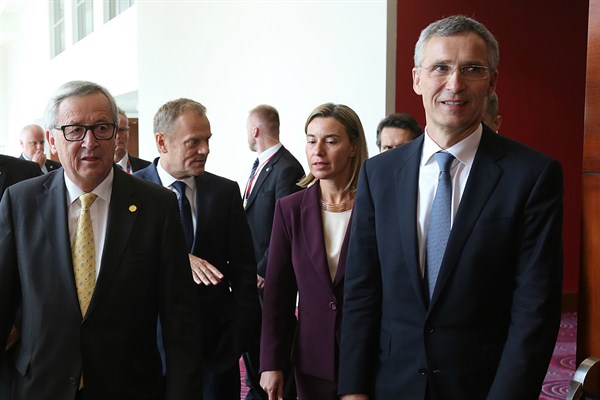Leaders from NATO, its partner countries, the European Union, the United Nations and the World Bank met in Warsaw last week for the alliance’s largest-ever summit. Among the key outcomes from the gathering, NATO leaders agreed to deploy four battalions to the Baltic countries and Poland in order to counter the growing threat from Russia; resolved to continue funding Afghan security forces and keep NATO forces in Afghanistan beyond 2016 for training purposes; and offered continued support for Ukraine’s military modernization efforts.
Perhaps the most overlooked agreement to emerge from the Warsaw summit was the joint declaration between the EU and NATO raising cooperation between the two organizations to the level of “a strategic priority.” Specifically, the declaration calls for the EU and NATO to expand their cyber defense cooperation and coordinate military exercises as early as next year, with the EU’s diplomatic service and NATO’s civilian staff to work together on implementation.
Speaking after the declaration was signed, European Council President Donald Tusk noted that “the EU and NATO face the same threats.” He added, “Instead of maintaining an illusion of going it alone, we need to increase our value as a NATO friend.” European Commission President Jean-Claude Juncker called EU-NATO cooperation “practical and urgent,” and said that “our roles are complementary, but we have every reason to work more closely together.”

